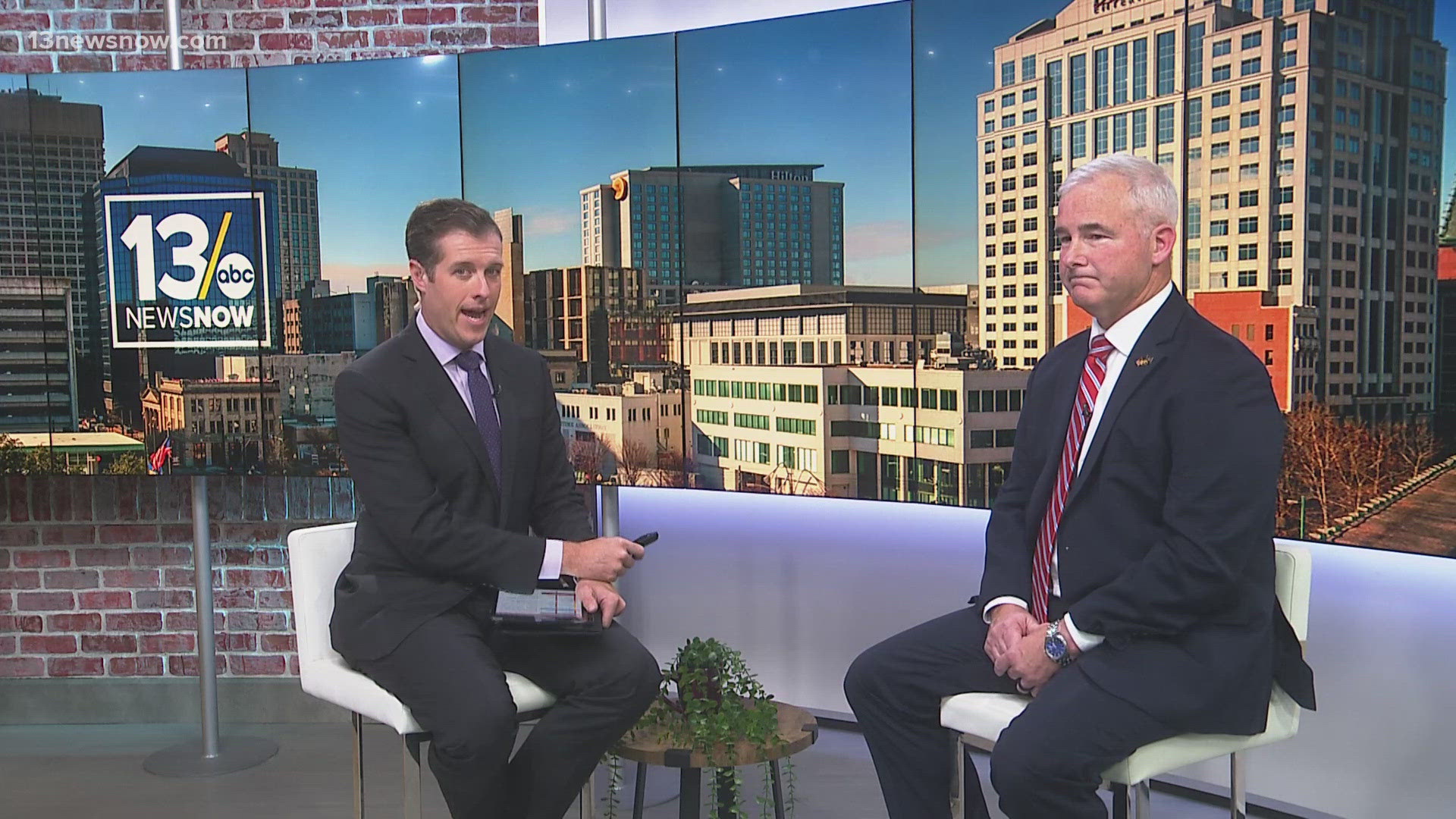NORFOLK, Va. — New research from the Better Business Bureau (BBB) indicates online scams – and the financial toll they take on victims – are on the rise worldwide.
In 2023, Virginians lost $265 million to scams, and people in North Carolina lose millions to scammers every year.
Last week, the Chesapeake Sheriff’s Office warned of the latest “jury duty scam” – where scammers pretending to be deputies texted residents with fake arrest warrants, ordering them to pay bail.
The Dare County Sheriff’s Office warned of a similar plot impacting their area on Tuesday, where scammers posing as deputies are asking for money to resolve fictitious court issues.
Brian Dugan, Special Agent in Charge of the FBI's Norfolk Field Office, sat down with 13News Now this week to share common types of schemes to be aware of, and how you can protect yourself.
Elder Fraud
Norfolk FBI has fielded about 2,700 complaints of elders falling victim to scams this year alone, Dugan said.
The most common scheme they see is investment scams – where scammers seek out seniors with regular income, and prey on their loneliness or interest in making more money.
“The bad guys are master manipulators,” said Dugan. “They know how to manipulate a human being, especially if someone's vulnerable like an elder.”
You can help the elders in your life by creating an open line of communication, and encouraging them to seek another opinion before providing personal information.
For seniors looking to protect themselves, Dugan emphasizes the importance of keeping your guard up.
“If it looks too good to be true, it probably is,” Dugan said.
Identifying fraudsters
Anyone can be targeted by scammers through various avenues — whether it be via email, text or phone calls.
They create a sense of urgency, making victims feel like they have to act immediately.
Dugan’s advice? Take a beat, slow down and verify.
“If you don't take that beat, take the time to take a look at it with a discerning eye, you [can] become victimized,” said Dugan.
The Special Agent says you should be suspicious anytime you are asked for money without initiating such a conversation.
The FBI will never call asking for money or account details – but you may get a call from authorities regarding cyber currency scams if your information has been compromised.
Business Email Compromise scams
In business email compromises, scammers target businesses and organizations through emails that appear real, but actually contain malware allowing them to take over an email account.
“If you get an email that looks suspicious, don't click on anything inside the email. Check with your company, check with your organization, see if it's legit,” said Dugan.
Email scams can be reported to the FBI’s Internet Crime Complaint Center. If authorities are alerted early enough, Asset Recovery Teams can try to get your money back.
Romance Scams
Romance schemes are the number one type of scam reported locally. Nationally, 17,000 romance scam incidents have already been reported this year.
Dugan emphasized that anyone can fall victim to these scams – not just seniors.
“They figure out how to get you to feel a connection and some type of urgency, but it's all about financial gain for them,” said Dugan.
He says a red flag to look out for is someone insisting on using encrypted apps to communicate, like WhatsApp, Signal or Threema, rather than texting or calling. These apps can make it harder to trace messages back to the scammer, protecting them as they deceive you.
Also, be wary of the personal information you post online. Scammers can leverage details they find on social media in trying to gain your trust.
If you or someone you know has been targeted by scams online, report the incident to IC3.gov or reach out to your local FBI field office.

